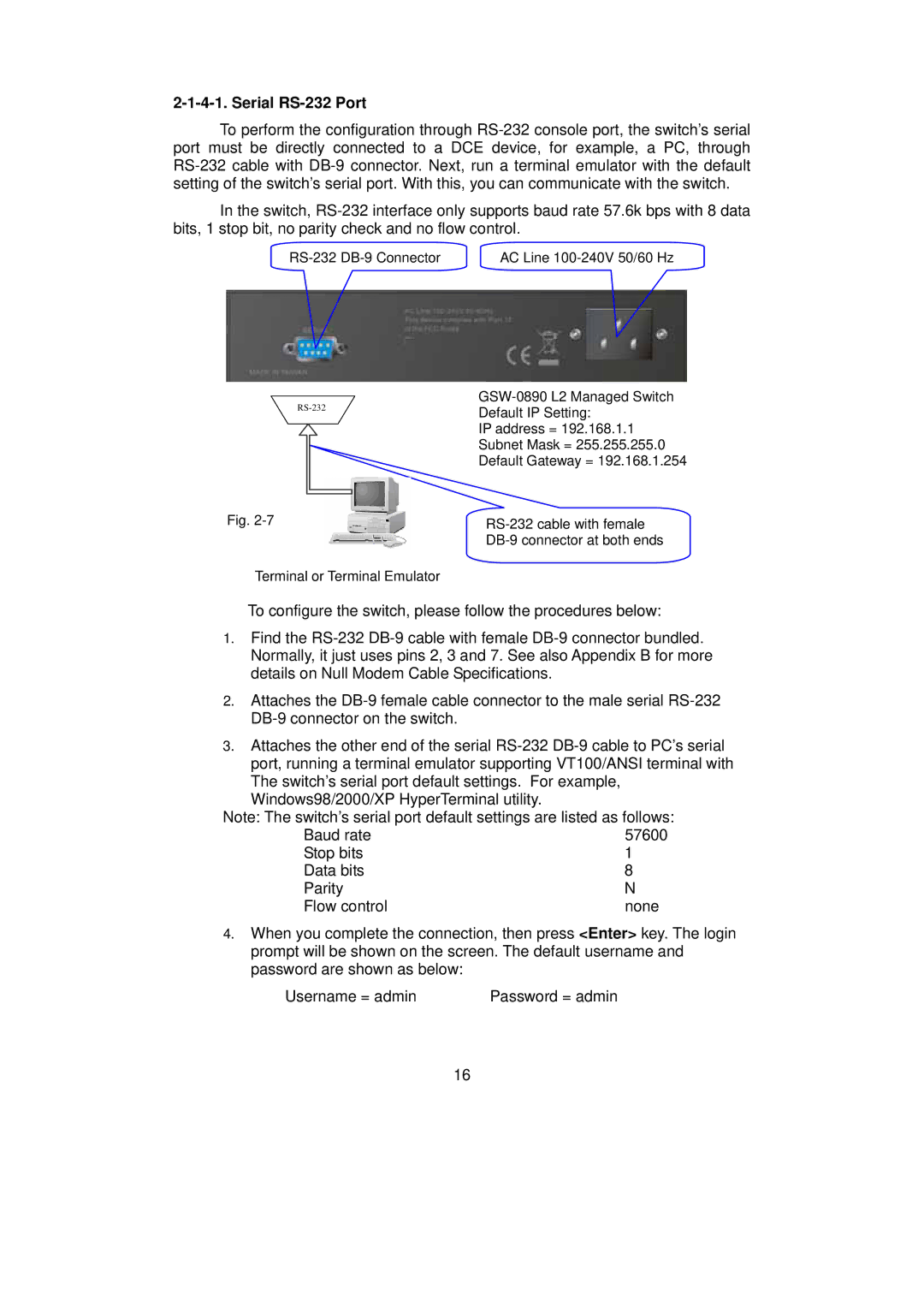2-1-4-1. Serial RS-232 Port
To perform the configuration through RS-232 console port, the switch’s serial port must be directly connected to a DCE device, for example, a PC, through RS-232 cable with DB-9 connector. Next, run a terminal emulator with the default setting of the switch’s serial port. With this, you can communicate with the switch.
In the switch, RS-232 interface only supports baud rate 57.6k bps with 8 data bits, 1 stop bit, no parity check and no flow control.
RS-232 DB-9 Connector | AC Line 100-240V 50/60 Hz |
GSW-0890 L2 Managed Switch Default IP Setting:
IP address = 192.168.1.1 Subnet Mask = 255.255.255.0 Default Gateway = 192.168.1.254
Fig. 2-7 | RS-232 cable with female |
| DB-9 connector at both ends |
Terminal or Terminal Emulator | |
To configure the switch, please follow the procedures below:
1.Find the RS-232 DB-9 cable with female DB-9 connector bundled. Normally, it just uses pins 2, 3 and 7. See also Appendix B for more details on Null Modem Cable Specifications.
2.Attaches the DB-9 female cable connector to the male serial RS-232 DB-9 connector on the switch.
3.Attaches the other end of the serial RS-232 DB-9 cable to PC’s serial port, running a terminal emulator supporting VT100/ANSI terminal with The switch’s serial port default settings. For example,
Windows98/2000/XP HyperTerminal utility.
Note: The switch’s serial port default settings are listed as follows:
Baud rate | 57600 |
Stop bits | 1 |
Data bits | 8 |
Parity | N |
Flow control | none |
4.When you complete the connection, then press <Enter> key. The login prompt will be shown on the screen. The default username and password are shown as below:
Username = admin | Password = admin |
16

